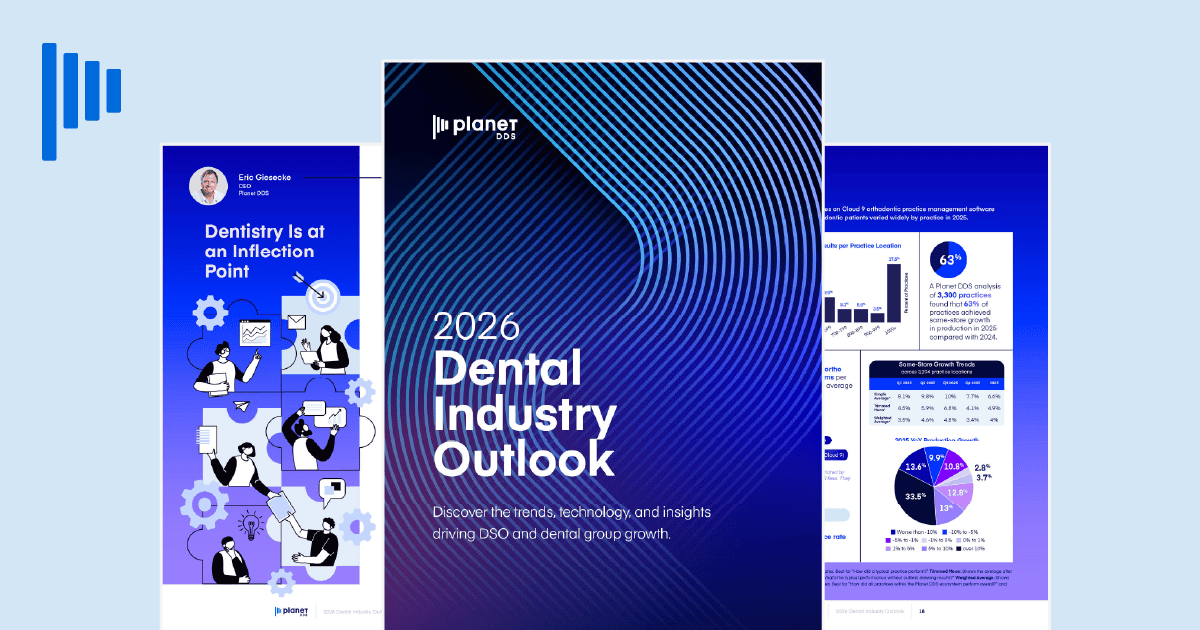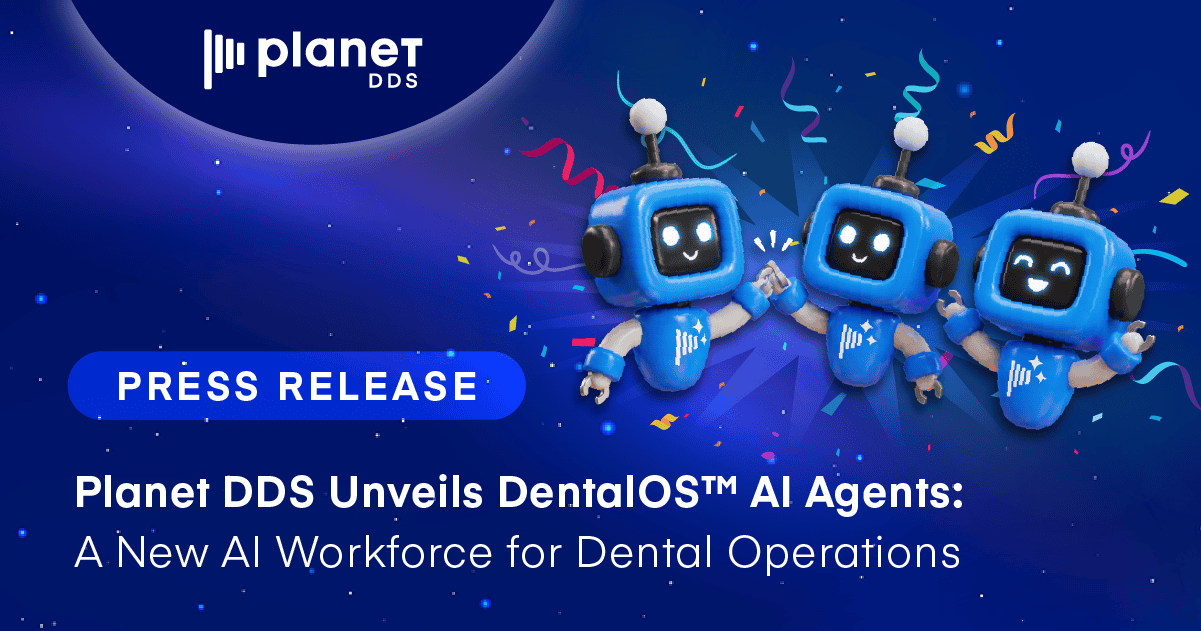Eric Giesecke on Tech Strategies Driving DSO Growth

In a recent episode of The DrBicuspid.com podcast, editor-in-chief Kevin Henry sat down with Eric Giesecke, CEO of Planet DDS, to explore the latest trends shaping dental support organizations (DSOs). The conversation covered everything from standardizing technology to the growing role of artificial intelligence (AI) in dental practice operations.
As DSOs adapt to economic pressure and shifting patient expectations, Giesecke shared how thoughtful technology choices can help organizations scale smarter and improve the patient experience.
What you’ll learn:
- How standardizing on a single platform helps DSOs scale faster and operate more efficiently
- Ways AI-powered agents automate tasks like filling schedules and posting payments
- How cloud-based tools give DSOs real-time insights to support better decision-making
- Why change management remains a challenge and how the right systems can help
- How patient expectations are shifting toward self-service, mobile-friendly experiences
Episode Highlights
Here’s a closer look at the key topics and insights explored in the conversation, from the role of technology in DSO growth to the factors influencing operational strategy:
Why standardization matters more than ever
Giesecke emphasized that many DSOs still rely on a fragmented patchwork of on-premises software, which limits their ability to scale effectively. In contrast, organizations that standardize operations on a single cloud-based platform gain better visibility, improve data sharing, and create a more consistent experience across locations.
Operating from one centralized system enables DSOs to standardize how care is delivered, track performance, and manage business functions such as revenue cycle management (RCM) and scheduling. Centralization also lays the foundation for layering on new technologies like AI and automation.
Unlocking efficiency through AI and automation
One of the most promising developments for DSOs is the use of AI agents, or software models trained to perform repetitive administrative tasks autonomously. Giesecke shared how these agents can automatically identify gaps in the schedule, contact patients willing to move appointments forward, and fill open slots without human intervention.
By handling time-consuming front office tasks, AI allows team members to focus more on patient care. Giesecke also noted the potential of AI in areas like claims adjudication, payment posting, and even detecting treatment eligibility, all of which could dramatically improve efficiency across the organization.
What sets DSOs apart from solo practices
The conversation also highlighted a core advantage of DSOs: specialization. While solo dentists must wear multiple hats—clinician, CEO, HR manager—DSOs are structured so that dedicated team members can focus on individual areas like billing, IT, or patient experience.
Technology plays a key role here too. Cloud-based platforms provide real-time visibility across locations, helping organizations run more effectively and respond faster to performance trends. Giesecke pointed out that with tools like automated reports and morning huddles, DSOs can act on insights that aren’t easily accessible in legacy, on-premise systems.
Change management: Still a hurdle
Despite having access to more data and better tools, DSOs often struggle to implement organizational changes. Giesecke acknowledged that change is hard, especially in a model where many practices are acquired and former owners still influence operational decisions.
That said, having the right technology in place makes it easier to adopt new workflows and maintain consistent standards. As more DSOs embrace open architecture and APIs, they can integrate third-party tools more easily and move toward a true operating system model.
Trends to watch in the second half of 2025
Looking ahead, Giesecke sees a shift in focus from mergers and acquisitions (M&A) activity to driving efficiency and growth within existing offices. Economic conditions and interest rates have slowed acquisition momentum, prompting DSOs to invest in technology that helps them “do more with what they have.”
At the same time, he noted the increasing importance of patient experience, particularly as younger, tech-savvy patients expect digital-first interactions. From online scheduling to insurance submissions, DSOs that make access easier are likely to stand out in a crowded market.
Get Modern Strategies for Growth
Many DSOs are facing a pivotal moment in how they manage operations and deliver care. As Eric Giesecke shared in this insightful conversation, the organizations that prioritize centralization, automation, and patient satisfaction will be best positioned to grow regardless of the market climate.
Want to learn more about how Planet DDS supports scalable technology for DSOs and dental groups? Contact us today to get started.



